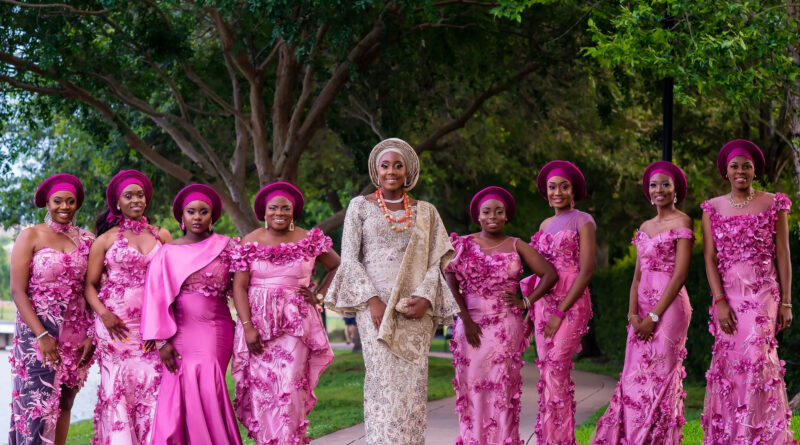Nigerian Wedding Traditions and Customs
Nigerian weddings are known for their exuberance, color, and cultural diversity. With over 250 ethnic groups, each with its unique traditions and customs, Nigerian weddings are a tapestry of heritage and celebration. These traditions are deeply rooted in the country’s history and reflect the values, beliefs, and social structures of the various Nigerian communities.
In this blog article, we embark on a fascinating journey through the captivating world of Nigerian wedding traditions and customs.

Nigerian Wedding Traditions and Customs Decoded
Here are some common Nigerian wedding traditions and customs:
1. Introduction Ceremony
In many Nigerian cultures, the wedding process begins with an introduction ceremony, also known as the “knocking ceremony.” In Yoruba land, it is known as “Mo mi i mo e” (know me and let me know you), while in Igbo land it is called Ikụ Aka n’ Uzo.
The groom’s family formally visits the bride’s family to seek their daughter’s hand in marriage. and blessings for the union. Most families set the date for the wedding ceremony during the introduction.
2. Bride Price
Bride Price also known as dowry is an integral part of Nigerian weddings. Before the wedding, the bride’s family will give the list of items he should provide for the bride and family before they can be engaged. This is usually presented on the wedding day.
The dowry can contain different material things, like clothes, fruit, food items, a new car, and so on. Most of these items are shared among the bride’s extended family.
The bride price is a token to show an intention to marry and also to appreciate the role the bride’s family played in raising the bride well.

3. Aso Ebi
Nigeria weddings are known for their colorful attires and traditional stylish outfits. Both the bride and groom families choose separate fabrics or colors of outfits for their guests to wear to celebrate their big day with them.

4. Prostration
Prostration is a gesture deeply rooted in Nigerian culture, symbolizing profound respect and humility. In a Nigerian wedding, prostration takes center stage. It’s a moment when the groom, often accompanied by his groomsmen, gracefully lies flat on the ground with their faces touching the earth at the feet of the bride’s family.
The groom must earn the love and honor of the bride’s family, and prostration is one powerful way of doing just that. During this act, the groom seeks the blessings and acceptance of the bride’s family, while the elders of the bride’s family shower him with prayers.
5. Money Spraying
One of the highlights of the event is the money spraying on the bride and groom. Guest shower the newlywed couple with money as they dance to wish them wealth, prosperity, and goodwill. Bridesmaids or kids are nominated to pick the money and then hand it over to the couple at the end of the event.
6. No Guest List
Nigerian weddings are often a big celebration with an open invite. There is always an abundance of food and drinks to go around, enough to feed hundreds of people. No Nigerian wedding is complete without an indulgent feast. Guests are treated to an array of traditional dishes, including jollof rice, fried rice, pounded yam, egusi soup, and various stews. The culinary offerings showcase Nigeria’s diverse and flavorful cuisine
7. Proposal and Acceptance
The groom is required to write a letter of intent to the bride’s family. This letter is a symbol of the proposal to the bride’s family with good faith of being accepted. The letter is read aloud by a member of the bride’s family and an acceptance letter is given to the groom’s family.
8. Double Ceremonies
Nigeria weddings host two ceremonies on either separate days or the same day. This is the traditional wedding and the religious wedding depending on the faith. Each event has separate officiants.
The parents of the couple have more say about what happens at the traditional wedding and it focuses on honoring culture and lineage. Wedding receptions often follow immediately after the religious wedding.
Conclusion
In this article, we are reminded that these celebrations are not mere rituals. These customs are the threads that weave the fabric of Nigerian culture. They are the echoes of laughter, the rhythms of music, and the colors of traditional attire. They make Nigerian weddings a beautiful story of love and heritage.

